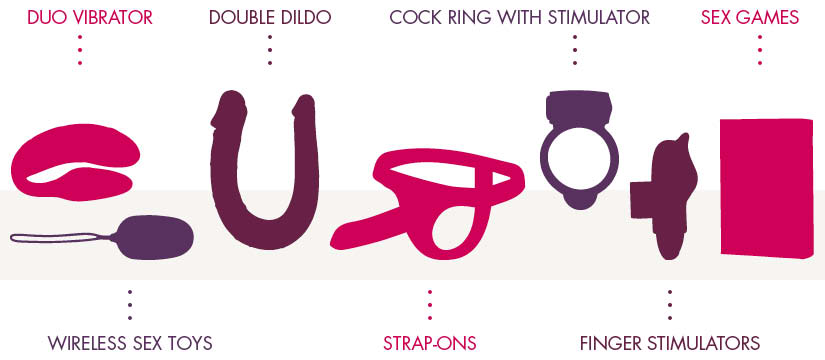If you’re searching “ali wong sex,” you’re likely curious about what Ali Wong’s fearless comedy and layered screen roles can teach real couples about naming desire, setting boundaries, and staying playful in the bedroom. Wong’s signature mix of blunt honesty and warmth has turned sexual candor into a relationship skill—proof that good sex isn’t a stunt; it’s a conversation.
This in-depth guide translates the big themes you see in her stand-up and characters into practical steps you can use tonight: simple communication scripts, comfort tweaks that reduce strain, and mindset shifts that make sex feel more present, not performative. You’ll also find a concise FAQ at the end.
Why Ali Wong’s talk about sex lands differently
Plenty of comics riff on sex. Wong’s difference is precision. She names specifics—angles, annoyances, aftercare—without flinching, then keeps the tone affectionate instead of cruel. If you want a quick vibe check of her breakthrough hour, scan the official page for Baby Cobra; that special is a masterclass in how explicit detail and humanity can coexist.
The takeaway for couples is simple: clarity is sexy. When partners replace hints with concrete words about pace, pressure, and position, guesswork disappears and connection deepens. That’s the thread running through her work—sex as clear communication, not mind reading.
Sex as literacy, not spectacle
Wong’s approach doubles as a curriculum for intimacy:
- Consent with character. Her jokes assume two competent adults with agency, which normalizes direct asks, clean no’s, and specific yes’s—habits that make sex feel safer and hotter.
- Body truths over body shame. She makes the mechanics part of the humor: pelvic-floor realities, postpartum shifts, plain old fatigue. Naming what’s true turns sex into a collaboration, not a test you pass.
- Humor as pressure relief. When a move misfires, playful language—“Take two, slower”—keeps arousal available. Laughter isn’t a detour; it’s the bridge back to connection.
For a candid window into how she threads sexuality through career and family chapters, her book-tour era conversations pair bluntness with care. One succinct example is this TIME interview about “Dear Girls”, which shows how vulnerability and humor can live in the same sentence.
What people really mean by “ali wong sex” (and how to use it)
After looking at the questions people actually ask, most fall into five buckets. Here’s how Wong’s public playbook becomes private wins.
1) “How do we talk about what we actually want?”
What Wong models: Say the quiet part out loud—kindly, specifically, and fast.
Try this tonight:
- Three-line script: “I like ___ because it makes me feel ___; I’m curious about ___; I’m a no for ___.” Keep it under 15 seconds.
- Heat map: Each partner offers one place, one pace, one pressure that works right now. Replace poetic with practical.
If you want usable language that many partners find helpful, skim the grounded primer what do men like during sex and borrow a line or two to sharpen your next request or reassurance.
2) “How do we be honest without killing the mood?”
What Wong models: Truth plus momentum. Name the tweak, then keep going.
Micro-moves that work:
- “Too sharp—slower and higher.”
- “Same rhythm—lighter pressure.”
- “Stay right there; don’t change speed.”
Choose one axis at a time (speed, pressure, or angle). Tiny notes are absorbed; long speeches break the spell.
3) “How do we balance fantasy and feelings?”
What Wong models: Fantasies are fair game, but the engine is human—envy, fear, tenderness, pride. Honoring both keeps things hot and safe.
Two-track talk:
- Hot track: What turns you on about the idea.
- Heart track: What you need to feel safe (privacy, code word, aftercare).
Deciding both tracks in advance turns role-play into a team sport, not a test.
4) “How do we navigate sex after big life changes?”
From pregnancy to divorce to career leaps, Wong keeps reminding audiences: bodies change by season. That’s not failure; that’s maintenance.
Seasonal reset prompts:
- What’s newly easy?
- What’s newly hard?
- What’s newly hot?
Often the fix is practical: more lube earlier, a pillow under the sacrum to reduce back arch, or a shorter thrust arc to ease hip flexors. Most “desire problems” hide an unsolved comfort problem.
5) “How do screen scenes translate to our bed?”
On screen, intimacy reveals character, not just choreography. Don’t copy the camera angle—copy the emotional note (tender, greedy, reverent, defiant) and build a moment that matches it. For a wider view of how she handles heavier material and sets boundaries while moving into prestige TV, the long-form Hollywood Reporter profile shows a thoughtful artist balancing candor with care.
The Wong toolkit: 5 habits to borrow tonight
- Say the quiet part out loud. One direct sentence per night—a desire, a boundary, or a curiosity.
- Keep feedback microscopic. One axis only (speed, pressure, or angle).
- Laugh with, not at. Use humor to bridge a change, not to jab at your partner.
- Rehearse the exits. A tap, squeeze, or single word means “pause.” Paradoxically, safety raises your ceiling for play.
- Praise precisely. “The last three seconds—when your hand stayed still—that.” Re-create-able feedback is repeatable pleasure.
Anatomy-first wins: comfort that unlocks desire
Wong’s physical comedy works because she respects how bodies actually move. If you honor mechanics, emotions get room to flourish.
- Lubrication is leadership. Add it early; re-apply often. Dryness → friction → guarding → less sensation.
- Range without strain. In folded shapes, soften the knees and shorten the hinge; in archy backs, slide a thin pillow under the sacrum.
- Transitions with breath. When switching positions, pause for two shared breaths; you’ll regain rhythm faster and avoid “re-tensing.”
Conversation prompts inspired by Ali Wong’s candor
- Two Greens, One Yellow: each partner names two green-light moves and one yellow they’re curious about (with conditions).
- Borrowed line: quote a Wong-style blunt one-liner to segue into a tricky ask: “Here’s my extremely honest sentence—ready?”
- Hot vs. Heart: split fantasy talk into what turns you on (hot) and what makes it feel safe (heart).
Step-by-step: turn all of this into a better night
- Name one specific desire out loud (≤10 words).
- Set a pause signal (tap twice or say a code word).
- Pick one rhythm (slow circles, steady pulses, or long glides) and keep it for 60–90 seconds before changing.
- Offer one tiny note (“lighter pressure”) and one encouragement (“keep that angle”).
- Check in before the finish—“stay or switch?”—so the best part happens on purpose.
- Aftercare on purpose: water, bathroom, 60-second cuddle debrief—“what should we repeat next time?”
Common mistakes (and quick fixes)
- Mystery ≠ privacy. You don’t need to hide to feel sexy; you need clear boundaries and specific asks.
- Gymnastics ≠ desire. Fancy positions can’t replace honest wants. Choose the feeling first, the shape second.
- Jokes that jab. Humor should hold the bond, not nick it.
- Skipping logistics. Lighting, music, lube within reach, pillow nearby. Boring prep is sexy prep.
People Also Ask (fast, real-world answers)
Is this about Ali Wong’s private life?
No. It’s about themes in her public work—how she talks about desire and how her characters use intimacy—and how those themes become bedroom skills for real couples.
What’s the top takeaway from her approach?
Specificity + warmth. Clear requests delivered kindly protect feelings and boost arousal.
We’re shy. How do we start?
Use the three-line script above. If nerves spike, text the sentence first and say it later. Reps build confidence.
How do we keep humor from killing the mood?
Aim for laughing with, not at. Use humor to pivot: “Okay, that angle is auditioning for a chiropractor ad—let’s add a pillow.”
What if we disagree about a fantasy?
Treat it like a menu, not a mandate. Appreciation is optional; consent is required. Keep both the “hot” and “heart” tracks in view.
How do we make sex feel honest without oversharing?
Share useful specifics (speed, pressure, angle) and save deeper stories until trust is sturdier. Honesty isn’t dumping everything at once.
Where can I see a snapshot of her candid style?
A quick reference is the official page for Baby Cobra, which captures the tone that made her a household name.
FAQs
1) Does Ali Wong’s public candor actually help couples have better sex?
Indirectly—yes. Her style normalizes direct requests, clean boundaries, and laughing through awkwardness. Those habits make sexual communication clearer and safer, which usually improves pleasure.
2) What’s one skill we can steal tonight?
Give one microscopic note while staying warm: “That speed is perfect; a touch softer.” Tiny adjustments are absorbed; big speeches stall momentum.
3) How do we adapt after childbirth, injury, or stress?
Assume your body is in a new season. Swap angles, shorten ranges, and upgrade comfort (more lube, strategic pillows). Name what’s different and renegotiate routines.
4) Can we combine fantasy with emotional safety?
Yes—use the Hot vs. Heart format. Say what turns you on (hot) and what you need to feel safe (heart). Agree on a pause signal before you begin.
5) Where can I learn how men often communicate desire?
For clear, actionable language, read what do men like during sex and adapt the phrasing to your dynamic.
6) What’s a good example of her career-long candor?
Her milestone special is Baby Cobra—a brisk tour of brutal honesty that still feels warm and human.
7) How does she frame growth across projects and life shifts?
For perspective on balancing intimacy themes with career and boundaries, this long-form Hollywood Reporter profile offers a thoughtful overview.
Final word
Searching “ali wong sex” might look salacious, but the real prize is a permission slip: speak plainly, laugh generously, and build sex like a craft you practice together. Start with one sentence of desire, one pause signal, one rhythm, and one tiny note. Repeat often. That’s how you turn performance into presence—and presence into pleasure.



![Most Powerful Bullet & Mini Vibrators [Tested in 2025]](https://couplepleasure.com/wp-content/uploads/2025/10/image-11-2.jpeg)
